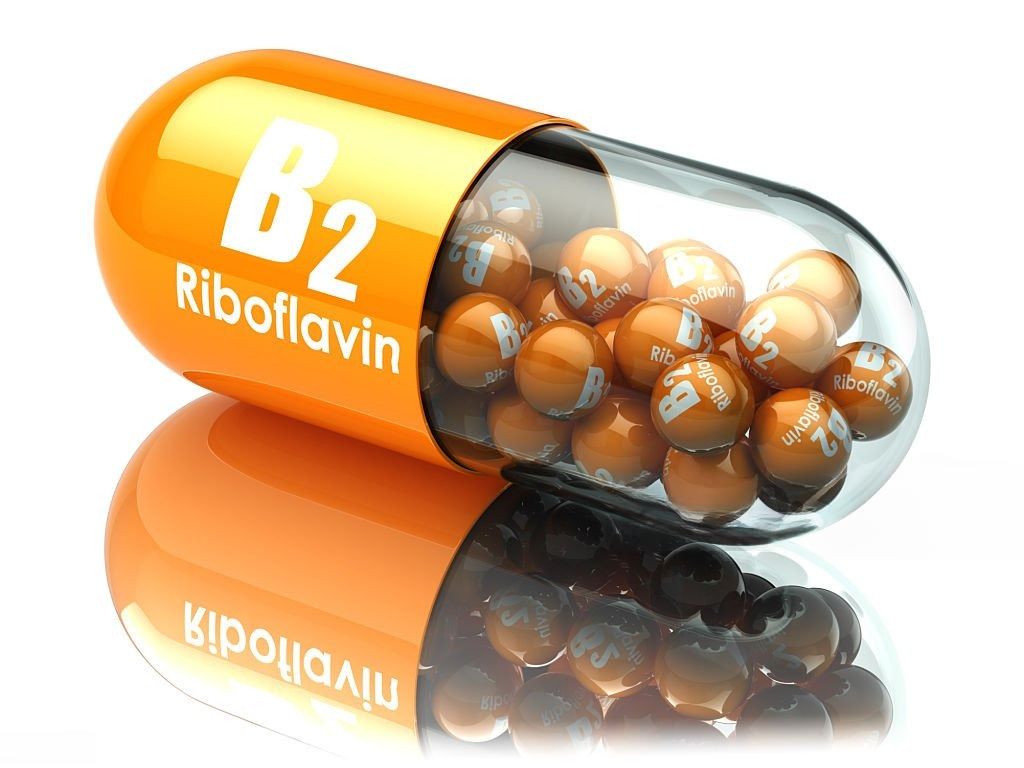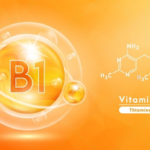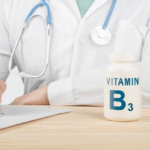Have you ever wondered what keeps your body ticking and your cells buzzing with energy? This is where B2 vitamin comes into play. From converting food into fuel to protecting the body from oxidative stress. Riboflavin (B2) is a silent but powerful hero working behind the scenes.
If you’re curious about vitamin B2, what is it exactly, how it works, and more, you’re in the right place! Grab a cup of your favorite beverage or snacks, get comfortable, and let’s break down everything about vitamin B2 together in this article. And making it easy for everybody to understand its benefits in everyday life

What Is B2 Vitamin?
B2 vitamin is also known as riboflavin. It is water-soluble and belongs to the B-complex group. It is important for overall cellular function. It helps you grow and develop, including helping your body produce energy from the food you eat.
What Does Vitamin B2 Do In The Body?
Vitamin B2 plays different important roles and offers a wide array of health benefits. This is why it is a favorite among nutritionists and health enthusiasts alike. Let’s look at some of the primary benefits of maintaining adequate riboflavin intake.
Energy Production
At the heart of vitamin B2’s role is its ability to help with energy production. By helping to break down food into ATP, riboflavin ensures that your body has a steady supply of energy throughout the day. This makes it an important nutrient for those who lead active lifestyles or anyone looking to increase their overall energy levels.
Antioxidant Properties
Another notable benefit of riboflavin is its antioxidant properties. It helps to combat oxidative stress and free radicals and protect cells from damage by them. Think of vitamin B2 as your bodyguard.
Skin and Eye Health
Riboflavin also greatly benefits your skin and eye health. It plays a role in maintaining healthy vision and preventing eye fatigue. Additionally, it is essential for cellular repair. It supports skin health, keeping your complexion bright and vibrant.
Cellular Metabolism
At the cellular level, riboflavin is essential for proper metabolism of nutrients. It acts as a coenzyme in many important reactions. Making sure that energy production is both efficient and effective. This process is comparable to a finely tuned engine maximizing every drop of fuel you provide.
Enzyme Functions
Vitamin B2 is also essential for the activity of various enzymes. These enzymes facilitate chemical reactions that support everything from repairing DNA to the fats and drugs metabolism. By doing so, riboflavin helps maintain the delicate balance needed for an optimal health.
Where Can We Get Vitamin B2 From?
One of the best things about vitamin B2 is that it is found in a wide variety of foods, making it relatively easy to add to your daily diet. Here’s a more detailed breakdown of good sources.
Animal Products
Meat: Beef, poultry, and fish
Dairy: Milk, yogurt, and cheese
Eggs: Eggs are a good source of various B vitamins, including riboflavin.
Fortified Foods
Some breakfast foods such as cereals and enriched breads are loaded with riboflavin.
Vegetables
Green vegetables (such as spinach and broccoli).
Diseases caused by vitamin B2 deficiency
Although vitamin B2 is found in many foods. It can still be deficient for two reasons .i.e. diet is poor in this vitamin and another reason is you can not absorb a vitamin properly. Riboflavin deficiency is also called ariboflavinosis.
Let’s explore what happens when you don’t get enough riboflavin and the symptoms to watch out for.
- Angular cheilitis, or cracks at the corners of the mouth
- Cracked lips
- Dry skin
- Inflammation of the lining of the mouth
- Inflammation of the tongue
- Mouth ulcers
- Red lips
- Sore throat
- Scrotal dermatitis
- Fluid in mucous membranes
- Iron-deficiency anemia
- The eyes may be sensitive to bright light, and they may be itchy, watery, and bloodshot.
Recommended Daily Intake of B2 Riboflavin
Adequate intake of B2 vitamin is essential for preventing deficiency. Recommended daily intake of riboflavin may depend on your age, gender, and other factors.
Life stage group |
RDI of B2 Riboflavin |
| 0–6 months | 0.3 mg |
| 7–12 months | 0.4 mg |
| 1–3 years | 0.5 mg |
| 4–8 years | 0.6 mg |
| 9–13 years | 0.9 mg |
| 14–18 | 1.3 mg for males, 1.0 mg for females |
| 19 and older | 1.3 mg for males, 1.1 mg for females |
| pregnant | 1.4 mg |
| breastfeeding | 1.6 mg |
This is for informational purposes only. It is best to talk to a healthcare professional before taking supplements.
Upper Intake Levels of Vitamin B2
There is generally no upper limit for vitamin B2 because the body excretes excess amounts. However, very high doses, usually from supplements rather than food, should only be taken under medical supervision. This ensures that you avoid any unexpected problems while reaping the benefits of riboflavin.
Although vitamin B2 toxicity is rare by overdosing, it’s always a good idea to keep your total intake in mind. If you experience unusual symptoms after eating the supplement, it is wise to consult your doctor. Listening to your body and seeking professional advice can help strike the perfect balance between benefit and risk.
Cooking Tips
Vitamin B2 is water-soluble. Cooking methods can affect and reduce the vitamin content of your food. To preserve vitamin B2, choose to boil or roast vegetables instead of boiling them for a long time.
Light cooking not only helps retain nutrients but also preserves the flavor and texture of the food. These small changes in the kitchen can lead to big improvements in your nutrient intake over time.
Conclusion
And there you have it—your backstage pass to the unsung hero of your daily hustle: vitamin B2, aka riboflavin. By powering up your energy production, shielding your cells from oxidative stress, and keeping your skin and eyes in tip‑top shape, this water‑soluble wonder truly earns its spot in your nutrition lineup. Whether you’re savoring leafy greens, cracking open an egg, or pouring a glass of milk, you’re fueling that inner engine one bite at a time. So go ahead—make riboflavin a regular on your plate and feel the buzz as you turn every snack into pure, sustained energy.
FAQs
Q1: What foods are richest in vitamin B2?
A: Dairy products, lean meats, eggs, green vegetables like spinach and broccoli, and fortified cereals are among the top sources.
Q2: Can vitamin B2 supplements replace my diet?
A: Supplements are useful when dietary intake is insufficient; however, they should complement a balanced diet rather than replace whole foods.
Q3: Are there any side effects of taking too much vitamin B2?
A: Vitamin B2 has a low risk of toxicity as excess amounts are excreted in urine, but it’s best to follow recommended guidelines and consult a healthcare provider.
Q4: How does vitamin B2 contribute to energy production?
A: It helps convert carbohydrates, fats, and proteins into ATP, which is the primary energy source for cells.
Q5: Who might benefit the most from vitamin B2 supplementation?
A: Individuals with restricted diets, certain absorption issues, or increased nutritional needs, such as pregnant women and athletes, may find supplementation beneficial.


